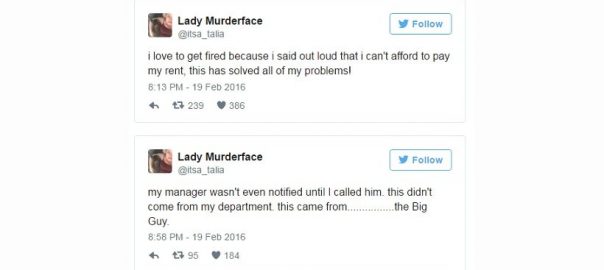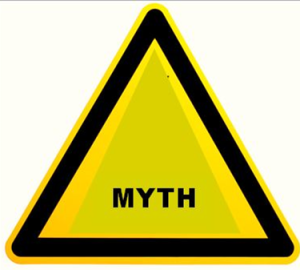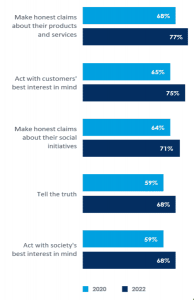
Today there are over 2.3 billion people active on social media. They’re sharing content and images, and employers are watching.
Social platforms serve as an open book for companies who want to learn about your professional experience, any mutual connections, and to see if you will be a good fit with their organization.
Employers would be remiss not to take advantage of what’s essentially a free background check right at their fingertips. And according to Jobvite’s survey findings, 55% of employers said they’ve reconsidered a candidate after looking into their social media profiles and find activity they consider to be a turnoff.

Source: Jobvite
Don’t be one of those candidates. Here are some handy tips for keeping your social reputation pristine.
Sharing Offensive Content
Not everyone has the same personality. What one person finds funny, another finds offensive. If you’re not sure what content will offend people, here are some things that tend to make people “clutch their pearls” or go off on a tirade.
Sexually Explicit/Suggestive Posts. Comments and pictures that are too sexual will only count against you. Employers don’t want to deal with any damage control over questionable activities that you appear to be involved in or condone.
Profane Language. Using a “colorful” vocabulary in your tweets or Instagram posts doesn’t show any professionalism or maturity to a potential boss.
Negative Posts. No one likes a Debbie Downer. Try to keep your posts positive, and if you can’t, it’s wise to not say anything at all.
Letting Friends Tag You Without Permission
You may be cognizant of your social media reputation, but can you say the same for your friends?
Your friends don’t care about your online reputation. They think it’s funny tagging you in the latest Trump tweet about “building a wall.” However, that job you just applied for might be run by someone who does care.
If your profile and comments are set to public, then anyone can see what is posted onto your page. What your friends post and tag you in, others can see, too.
If you have people that send or tag you in questionable things you should consider setting your comments to private. And make sure only you know your password, too.
Posting Unsavory Photos
Would you want your mother to see that picture? If not, you probably shouldn’t post it.
Think twice about the pictures you post. Images that include provocative or crude gestures can negatively impact the overall opinion that someone will have of you.
Ashley Payne — pictured below — found that out the hard way. Here, the former Georgia-based teacher is pictured drinking during a European trip. Normally that wouldn’t be an issue, but she posted it on Facebook.

Source: DailyMail
When a parent saw the image (which was also accompanied by an offensive contest reference), they brought their concerns before the school board. And, while this photo wasn’t taken during a school-sponsored event, nor was she ‘on the clock’, the outcome still wasn’t good for Payne. The school board told her she would have to either resign or would be suspended.
Drug and alcohol use is always a red flag for employers to see. These types of images not only can cost you a job interview, but also the job itself once you’re employed.

Source: Time
Posting Too Much Political Commentary
A sage person once said, “There are three things you’re not to supposed to talk about: religion, money, and politics.”
The latter might be super difficult not to do right now, but politics is a very touchy subject. It’s not just who you do or don’t support but also what you do and don’t support. Opinions on issues like gun control, immigration, etc. differs from person to person.

Remember, employers are trying to determine whether or not you’ll be a good fit within the company. If you seem to appear very passionate on the opposing side of other employees, they might not think you will integrate well within their business.
In addition to politics, be leery of associating online with the wrong groups. If you’re a part of public groups, make sure they are dealing with appropriate subjects. It surely won’t work to your benefit if the hiring manager sees you’re a member of “My Boss Is a Nightmare” or “Party All Day.”

Source: Facebook
Airing Your Dirty Work Laundry
Never post comments or complaints about work-related incidents, bosses, or coworkers. When a recruiter or hiring manager sees that you speak negatively about work, they’ll think you lack discretion and the ability to handle sensitive situations appropriately.

Source: the dailypedia
Talia Jane — a former Yelp worker in San Francisco learned the repercussions of venting her frustrations publicly. She wrote an open blog post to her boss about how unfair Yelp’s wages were. Two hours after she posted her blog, she posted to her Twitter about how she was just fired from her job.

Source: Business Insider
While she does have freedom of speech, her managers at Yelp didn’t appreciate her public shaming. And neither would other employers. Once they see that she publicly addresses her issues instead of trying to resolve them with HR, employers will be leery of hiring her.
Embellishing Your LinkedIn Profile
Don’t ever lie or misrepresent yourself on social media, especially on LinkedIn.
If you paint a prettier picture of your work experience, get hired, and show up not knowing what you claimed to know – you’re setting yourself up for failure. Now your boss and coworkers will need to bring you up to speed or let you go.
Also, contradicting yourself on social media is just another form of lying. If you imply one thing to the hiring manager and have information on social media contradicting what you said, you won’t seem trustworthy, thus hurting your chances of being hired.
The best precaution to take would be to set your personal accounts to private, while making professional accounts – like LinkedIn – public. Then you won’t have to worry as much about content on your personal profile that could hurt you professionally.
Conclusion
Now that you’re aware of all of the social media mishaps that can be hurting your job opportunities – it’s time for you to go through your profiles with a fine-tooth comb and revise your image to reflect a great candidate that’s worth hiring. Good luck!
Business & Finance Articles on Business 2 Community(74)







